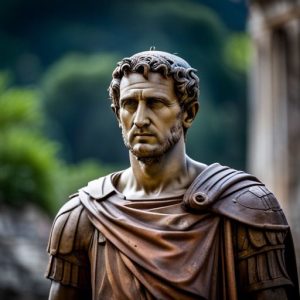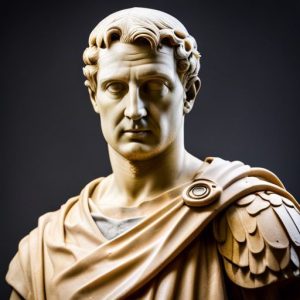

Meet Tiberius Claudius Caesar Augustus Germanicus, also known as Claudius, a Roman emperor who ruled from 41 to 54 AD. Born in 10 BC into the powerful Julio-Claudian dynasty, he was the son of Nero Claudius Drusus, a prominent Roman general, and was destined for great things. However, his family considered him weak and mentally challenged due to his various health problems, which led to him being excluded from public life and not considered a potential emperor.
Despite his family’s opinion, after the assassination of his nephew Caligula, Claudius was declared emperor by the Praetorian Guard. And boy, did he prove them wrong! Despite his reputation as a weak and foolish man, Claudius showed himself to be a capable ruler, known for his administrative abilities and several important reforms, including improving the legal system and expanding the Roman Empire.
Under his rule, Britain was conquered, and significant contributions were made to the construction of important public works like aqueducts and roads. But that’s not all, Claudius was also a scholar and writer. He wrote several works on history and politics, including a 20-volume history of Rome, and was a patron of the arts, encouraging the development of literature and drama in Rome.
However, like any other ruler, Claudius had his flaws. He was criticized for his personal life, including his marriages to several women, some of whom were accused of plotting against him. He was also known for his fondness for gladiatorial games and was accused of being cruel to his opponents.
Despite these criticisms, Claudius is remembered as a successful and important emperor. He was the first Roman emperor to be born outside of Italy, and his reign marked a period of stability and prosperity for the Roman Empire. He passed away in 54 AD, possibly poisoned by his wife Agrippina, who wanted her son Nero to become emperor. Even after all these years, Claudius’s legacy continues to be studied and debated by historians and scholars, and he remains an essential figure in Roman history.
